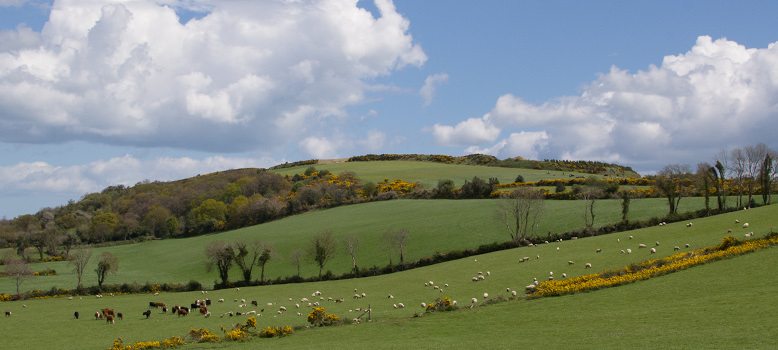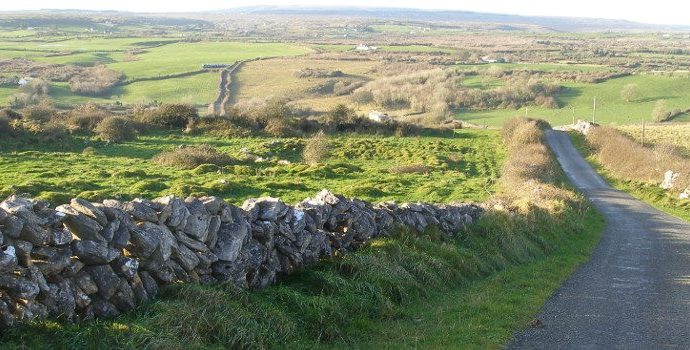Rural Development Council Report May 2022

TAMS
- TAMS Tranche 26th opened on April 9th and will close on Friday, 1st July 2022
- To keep pace with soaring costs of materials, IFA insisted that a full review of TAMS costings be carried out to ensure farmers receive a grant rate that is reflective of the actual cost of investment incurred
- Following continued lobbying by IFA, a full review of TAMS reference costings was undertaken last year and implemented at the start of Tranche 26
- The increase in reference costings range from 5% to 15% across the investment’s items listed under TAMS
- IFA continue to lobby for a system to review costings before the opening of each tranche while the extremely high levels of inflation continue
- At a meeting with IFA, the Department of Agriculture confirmed that there was a 100% approval rate for the 1,735 applications received under Tranche 24.
- To date, 49,278 approvals have been issued
- Payments of €345.23m have been paid out to 27,588 farmers to date. A further 1,339 farmers have lodged payment claims.
- Average weekly payments range between €1.2- €1.4 million.
- The revised TAMS Budget to include the CAP Transitional period of 2021 and 2022 is €523.81m
- When the carryover allocation from TAMS 1 is taken into account, €357m has been spent out of the RDP allocation of €523.81m.
BPS/ANC Schemes
- 97,160 BPS applications for 2022 have been submitted as of Sunday 8th May.
- For 2022, the ANC minimum stocking density requirement will be calculated on the maximum eligible area (MEA) submitted in 2022, rather than on the claimed area, as was used in previous years.
- BPS and ANC 2022 will close for applications on Monday 16th May
GLAS
- GLAS advance payments (85%) commenced in the 2nd week of November with the balancing 15% payment due in mid-May. Over 45,000 farmers received their advance GLAS payment, totalling €159.6m.
Agri-Environment Training Scheme
- One day course (6 hours) for farmers up to the end of June 2022- €156 for the day
- ½ day delivered on farm and ½ day off farm
- Voluntary training scheme- open to all farmers to improve their knowledge of agri-environment initiatives and farm safety.
- Applications are currently open and farmers are encouraged to contact their advisor for more information
- Course will provide:
- Update on environmental issues and developments at EU & National level
- Lessons from GLAS participation- info on individual commitments and issues arising. Actions to be viewed on farm
- Key ecological concepts e.g., preservation of Natura 2000 sites & bird habitats
- Intro. to results based agri-environmental measures and payments including use of scorecards
- Information on farm health & safety standards
CAP Reform
- An updated draft version of the CAP Strategic Plans was submitted by DAFM to Commission on Dec 31st 2021. This latest draft version is currently available to the public.
- In March, DAFM received the European Commission’s Observations letter in respect of Irelands draft CAP Strategic Plan. The Commissions observations include the following;
- On Eco-Schemes, The Commission has concerns that the impact on the environment will be modest and may ultimately not lead to an improvement of the farming footprint on environment and climate in Ireland. The Commission has suggested grouping the eco-scheme practices in pairs and planning a separate unit amount for each practice. Under Conditionality, the Commission has requested Ireland to review and further strengthen measures outlined under each GAEC. On the proposed new Agri-environment Climate Measure (AECM), the Commission is seeking clarification on a number of points such as how Vulnerable Water Areas are defined under the general measure, and how the 8 proposed co-operative areas of the scheme have been selected. For the On-farm Capital Investment Scheme, the Commission has suggested that low emission livestock housing techniques should be considered under the measure.
- DAFM will have time to reflect on the observations and reply to key points by June. IFA participate in the CAP Consultative Committee and have made a submission in light of the observations outlined
- New agreement will commence on Jan 1st 2023
Proposed New Agri-Environment Scheme (AECM)
- A new Agri-environment and climate measure (AECM) will replace the current GLAS scheme. It will consist of two elements:
Cooperation Project option:
- available to farmers in 8 zones which have been defined as high priority geographical areas
- Farmers will work with a Local Cooperation Project Team, who will assist in the implementation of the scheme at local level. Submissions for tender closed on 8th March, with details of successful applicants expected to be announced shortly.
- It will build on the current EIP’s – one contract
- Average payments are expected to be in the region of €7,400 with the potential for a maximum of €10,500.
- There are approx. 32,000 farmers in the areas identified under the co-operative option
- Uptake under the AECM Co-Operation is estimated to be 20,000 farmers over a number of tranches.
General option:
- Available nationally to farmers not in the Co-operative Model areas
- This will consist of farm level actions including results-based measures.
- Average payments are expected to be in the region of €5,000 per annum over the five-year period of the scheme with the potential to reach a maximum of €7,300.
- Expected uptake is estimated to be 30,000 farmers over a number of tranches.
IFA Comments on the AECM
- The AECM Scheme must deliver €10,500 to farmers and facilitate higher payments where existing schemes that farmers are participating in are returning a higher farm payment. Failure to do this will reduce the ability of farmers to deliver for the environment.
- The AECM Co-operative Option aims to replace GLAS and EIPs. However, some farmers in the relevant areas will experience a major cut in payment from AECM by comparison with what they received, combined, through GLAS and EIPs, which is unacceptable and counterproductive in terms of environmental output.
- There is a real issue of transition for farmers completing GLAS and the commencement of AECM being caused by the tranche funding approach. Providing for only 25,000 farmers to be accepted in 2023 is simply insufficient. In light of the importance of GLAS/AECM payments to farmers’ incomes, it is essential that all applicants under all tranches be accepted and paid in 2023, or that GLAS contracts are extended to bridge the gap.
- The design of the Co-op aspect of the scheme is likely to lead to leakage of funds to administrative costs. Funding for the Local Project Team involved in the running of the co-operative option part of the scheme must not come from CAP and leakage of funds must not be allowed
- The cooperative model and the general option are to include four results-based measures. Results-based measures must be realistic and suitable for all sectors, include a large list of options and provide for simple scoring which is easily defined. They must also be practical and achievable. There are currently four proposed results-based actions: commonage, low input grassland, low input peat grassland and protection of rare breeds.
- It is critical that the scheme recognises existing features on farms and continues to enhance earlier scheme actions.
Upcoming Events
- COPA Working Party on CAP- May 2022
- Farmers Charter of Rights- June 2022


